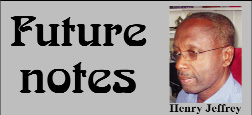Western intellectual tradition is said to consist of the sometimes uneasy coexistence of two essential elements: one from Jerusalem and the other from the philosophical tradition of Athens.
The spirit of Jerusalem represents the development of general morality, love and faith. Christmas is a time when this spirit is given precedence by Christians and many non-Christians alike with their exchanges of messages of good cheer and presents to friends and families.
Rationality, democracy and scientific investigation are at the core of the spirit of Athens. Of the ancient philosophers, I believe that this spirit is best caught in the attitude of Socrates (469-399 B.C.). When accused of corrupting the morals of the young and on trial for his life, he refused demands that he cease his teaching with the claim that “the unexamined life is not worth living.” With Aristotle (384–322 BCE) we had moved from purely speculative philosophy to empiricism.
 3If Christmas focuses our attention on the past: on human creation and salvation through Jesus Christ, the New Year demands that we look forward and choose positive roads for ourselves, our families, our communities and – at a stretch – the world.
3If Christmas focuses our attention on the past: on human creation and salvation through Jesus Christ, the New Year demands that we look forward and choose positive roads for ourselves, our families, our communities and – at a stretch – the world.
Today this column will put aside the relatively mundane concerns with national politics and practical living and provide a personalized understanding of where the above two elements have taken us thus far. I will be arguing that Eve ignited the process that has led to the scientific revolution!
The Bible is usually regarded as a holy book but it may also be seen as providing lessons about how we should live the good and moral life and/or as a work from which we may learn archeological and anthropological history.
I will look at the Bible as a political book, providing what Steve Smith claimed is “a matchless account of the beginning of humanity, the creation of the first family, the rise of civilization and the eventual separation of humanity into distinct peoples and nations.” (2012, “Political Philosophy,” Yale University Press).
But to make sense of our question I will limit my investigation to one of the many questions the spirit of Athens, Socrates for example, would have had for the Biblical account of creation. I will focus on my understanding of the Christian account of “the Fall of Man”.
We are told that man was created without knowledge of good or evil. Adam was told by God that he may eat freely of all the plants in the Garden of Eden except the tree of knowledge – of good and evil. If he ate of that tree he would die. Adam originally obeyed God’s command but the wily serpent was able to convince Eve to first eat the fruit of knowledge by promising that if she did “you will be like God” and she then persuaded Adam to eat it.
Eve’s action led to our acquiring moral knowledge: our understanding of good and bad. “Then the eyes of both were opened” and the first thing they noticed was their nakedness, and this induced a sense of shame.
How many times have we not rebuked someone for not having any shame? Whether we would have been different and better creatures had Eve not eaten the forbidden fruit, a sense of what is shameful and the capacity to make moral distinctions is the essence of our humanity. With it the key to the development of human history was born.
Indeed, Eve got into trouble with God for the very reason Socrates was later to fall afoul of the authorities: questioning received wisdom.
Contrary to the everyday notion that Eve’s consuming the fruit of knowledge brought sin and evil, one interpretation, that of John Milton in “Paradise Lost”, viewed her action as a “happy fault.” For “If Adam and Eve had not sinned, Jesus would not have been born, Mary would not have been sanctified, and salvation would not have come into existence. These things are greater than what would have existed if the fall had not occurred; therefore, Adam’s fall was ultimately for the good” (www.cliffsnotes.com/literature/p/paradise-lost/). By disobeying, Eve initiated the spirit of Athens and all that followed therefrom. If we accept this interpretation, we should perhaps make less of the dichotomy between the spirits of Jerusalem and Athens. The former remained dominant for some time after the rise of the latter but neither was ever totally absent.
Fast forward to the present day, but please remember that Satan, in his guise as a serpent, promised Eve that if she adopted what we can now call a scientific approach “you will be like God” and that today the spirit of Athens appears preeminent.
In an article “The first person to live for 1,000 years is probably already alive”, Richard Seymour, a veteran design consultant speaking at the Wired 2011confab in October 2014, also argued that of those between 20 and 30 years of age sitting in his audience, some were certain to reach 130 years of age.
Seymour is reported to have claimed that “The future is a secret”; it is just packed away in the research vaults of various companies. “And if he told us anything that he has learnt from the companies he has worked with, he would have to kill us.”
Only earlier this month Stephen Hawking, the world’s most famous physicist, appears to have been attempting to invoke the spirit of Jerusalem with his warning about the risks posed by the development of super-intelligent machines. The development of artificial intelligence is “the most significant thing to ever happen in human history — and possibly the last.”
Writing in “The Independent” (07/12/2014), Hawking and some of his colleagues argued that policy makers need to act now. Improvement in artificial intelligence could be of great benefit to mankind but we cannot predict what might be the outcome: good or bad. “… machines with superhuman intelligence could repeatedly improve their design even further, triggering a “singularity” (a future point in time when artificial intelligence will surpass human intelligence and be able to self-replicate and improve itself autonomously).
The implications of such an “improvement” on life span aside, it is obvious that if the spirit of Athens could facilitate our living for 1,000 years, it may make sense to ask “Oh death where is thy sting?”
But as we have seen, ironically, the pathway to defeating death may also lead to the end of humanity as we know it!
Have a happy and prosperous New Year.









